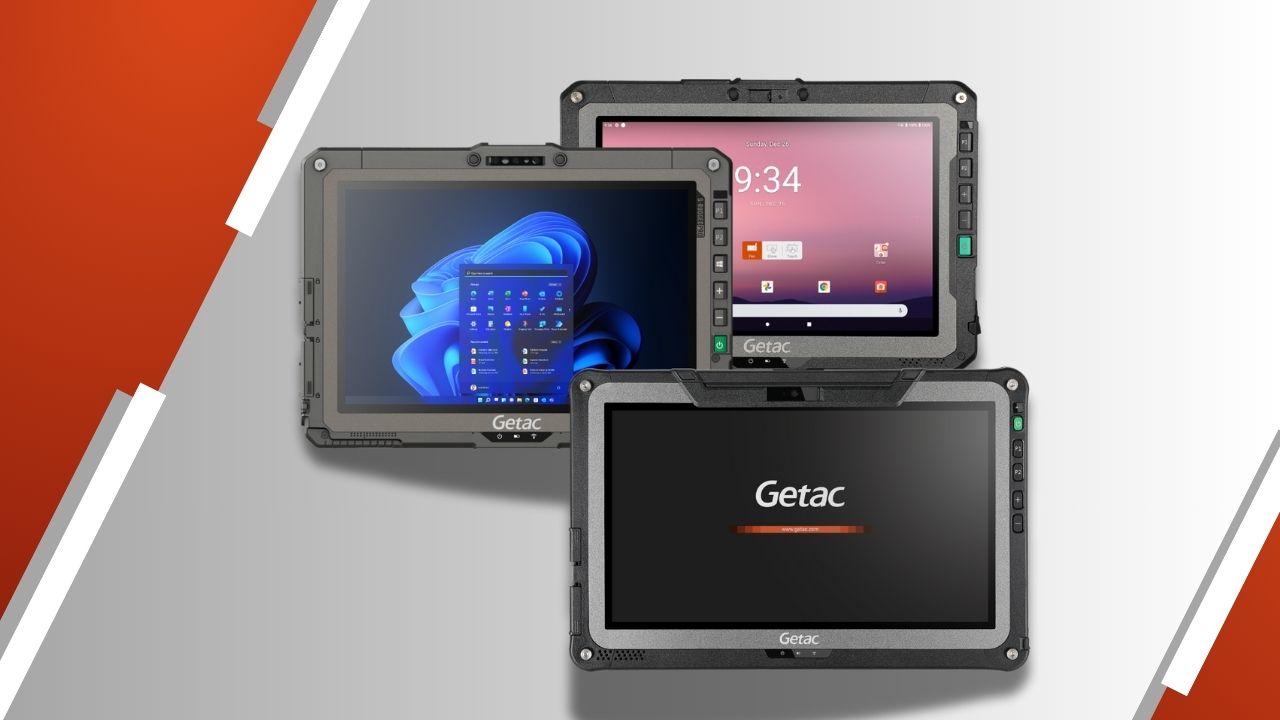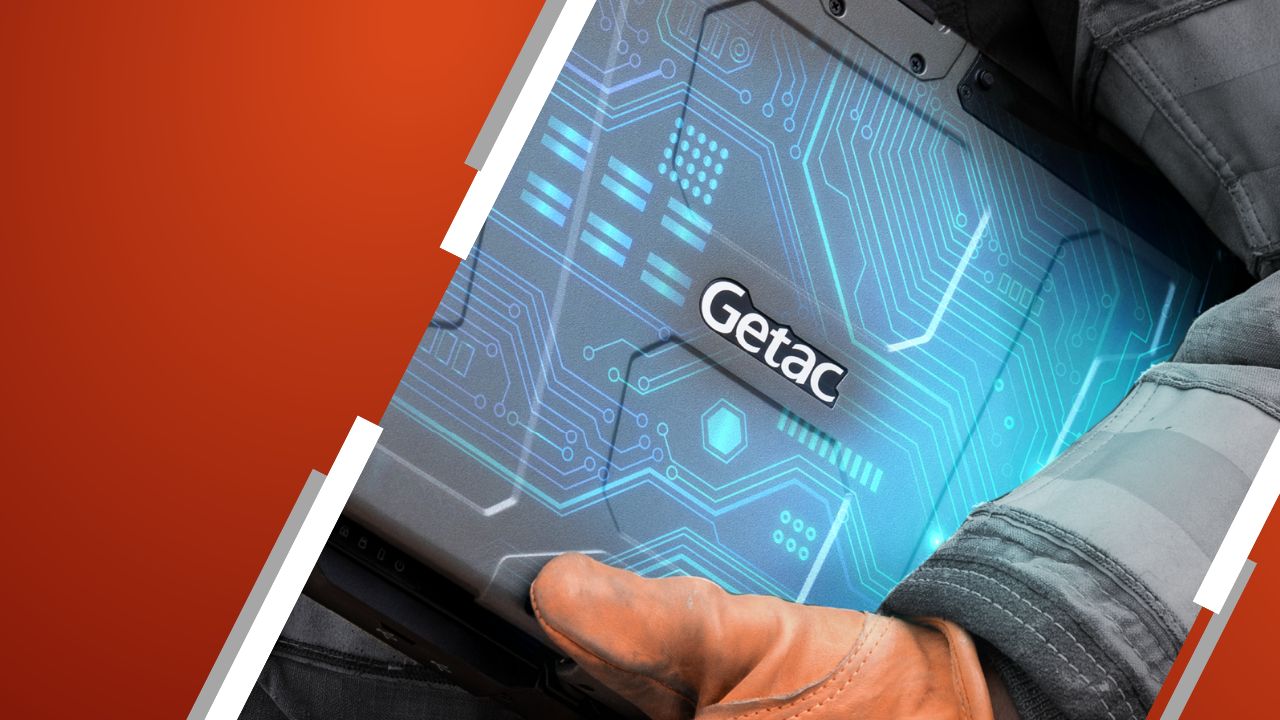As one of the leading rugged computer providers, Getac offers extensive rugged computing product lines and serves a wide range of vertical markets.

Getac Select
A combination of rugged computing devices, software, accessories and professional services in a purposeful range of specifically tailored solutions.
Getac Assist
Getac Assist is our fully rugged remote expert solution aimed at assisting field service engineers and technicians with knowledge transfer, remote guidance, inspection, quality control, safety, compliance, and more.
Getac Custom Solutions: Built For You
With Getac Custom Solutions, adapt our proven rugged devices with purpose-built features and add-ons for your unique industry’s needs. Tailor-made to fit your exact workflow, environment, and operational goals.
Defence
Mission-critical COTS computing that delivers high powered processing and reliability in operational environments.
Public Safety
Ambulance, Fire & Rescue and Policing applications
Utilities
Smart Meter Reading and Installation, On-site Safety, Utility Asset Management, Workforce Management for Utilities, Mobile GIS, Surveying and Mapping
Transportation & Logistics
Railroad Management, Airport Management, Port Management, Long-haul Delivery Fleet Management, Warehouse Materials Handling
Oil & Gas
Remote Support, Asset Management, Field Data Analysis, Workplace Safety
Industrial Manufacturing
Industrial Programming and Robotic Control, Facility management, Compliance and Inspections, Workforce Management, Inventory and Warehouse Management, Factory Automation and Plant Monitoring, EAM and CMMS Solutions.
Automotive
Optimised Rugged Mobile Solutions to drive a smarter approach throughout the automotive value-chain.
Natural Resources
Mining, Forestry and Construction applications
With 2022 in full swing, there is optimism that the way industries work will continue to evolve post-pandemic. Organizations are shifting specifically for frontline workers and field technicians carrying out work orders, inspections, installing and repairing small to heavy equipment, and in some cases, operating machinery. Rugged mobile devices can play a key role in the digitization of frontline work.
Organizations continue integrating technology that transforms existing processes to meet service demands and customer expectations. Over the last few years, the focus has shifted from the back-end to the frontline technician. Thanks to advancements in mobile technology, frontline workers can be more efficient than ever, resulting in better communication between management, peers, and subject matter experts, higher customer satisfaction ratings, and faster ROI.
The frontline landscape is changing with new connectivity technologies such as 5G, Li-Fi, and Internet of Things (IoT) deployments. This requires the frontline workforce to be more tech-savvy than ever while also being able to interact with these technologies. Many organizations are also facing a massive wave of experienced field service technicians retiring, resulting in a younger, less-experienced workforce. These changes have three major effects on an organization’s technology spending.
With ransomware and cyberattacks proliferating against field service industries, including oil & gas, utilities, law enforcement, and healthcare, keeping devices and data security are one of the main concerns of IT managers. When employees take their work devices home at the end of the day, security risks increase significantly.
If an employee is going to be using work devices on their home Wi-Fi networks, an encrypted Virtual Private Network (VPN) is good practice. It is also good to have a newer Wi-Fi-6 router with WPA-3 encryption, with the same on whatever work devices are using that network. Organizations can also consider deploying devices with multifactor authentication (MFA). This security technology requires a user to pass multiple methods of authentication to identify and verify the user before login or access to pieces of data.
Since field devices are often dropped, shaken, and exposed to the elements, field technicians often require more rugged computing devices than a traditional COTS (Commercial-Off-The-Shelf-Device). There are two current trends further raising the bar.
One, digital transformation in the field, especially an increased reliance on the Cloud and Edge computing is creating a greater need for these devices to be always on, instead of merely present. And two, with these devices being brought into the office less often, problem resolution has become more challenging.
In other words, field equipment must be able to tolerate more wear and tear than it did before. If a failure occurs, it could be days before workers can hand it over to IT. It would also be good if the field tech is modular, with vital parts like the battery or storage drive easily replaceable, preferably without tools, so that operation can carry on with little to no interruption.
With field equipment less likely to be returned to the office each day, sharing devices amongst employees will become less common. This means organizations need to buy more units for the same headcount so that devices can be issued individually. It also means that field service organizations might want to follow the lead of their more deskbound counterparts and start offering employees more choices regarding key devices, like their mobile computers. Some employees might want a larger screen with easier-to-read text and a full keyboard, while others might prefer the mobility of a one-handed device.
Some of the same pandemic measures that led to fieldwork becoming less tethered have also led to field tasks, once performed by pairs or teams, now being done by individuals. This is driving the adoption of field tech with remote cameras and communications, thereby frontline personnel can receive assistance and guidance from anywhere in the world in real-time.
Even as the pandemic subsides, some industries will continue to face labor shortages and waves of retirement, so the use of remote guidance and remote monitoring of frontline workers is unlikely to subside significantly.
Additionally, multiple simultaneous incidents or emergencies are becoming harder to handle, with news about such incidents traveling faster than ever. This makes improved pre-emptive sensor monitoring necessary.
But the more sensors you deploy, the greater the likelihood of irregularities and false alarms in the data they generate. Organizations need sufficient detail and nuance in that data to know what requires immediate attention, what can wait, and what can be ignored. Edge computing provides this, as does the use of drones and robots as your first responders, driving another disruptive trend.
As one of the leading rugged computer providers, Getac offers extensive rugged computing product lines and serves a wide range of vertical markets.



